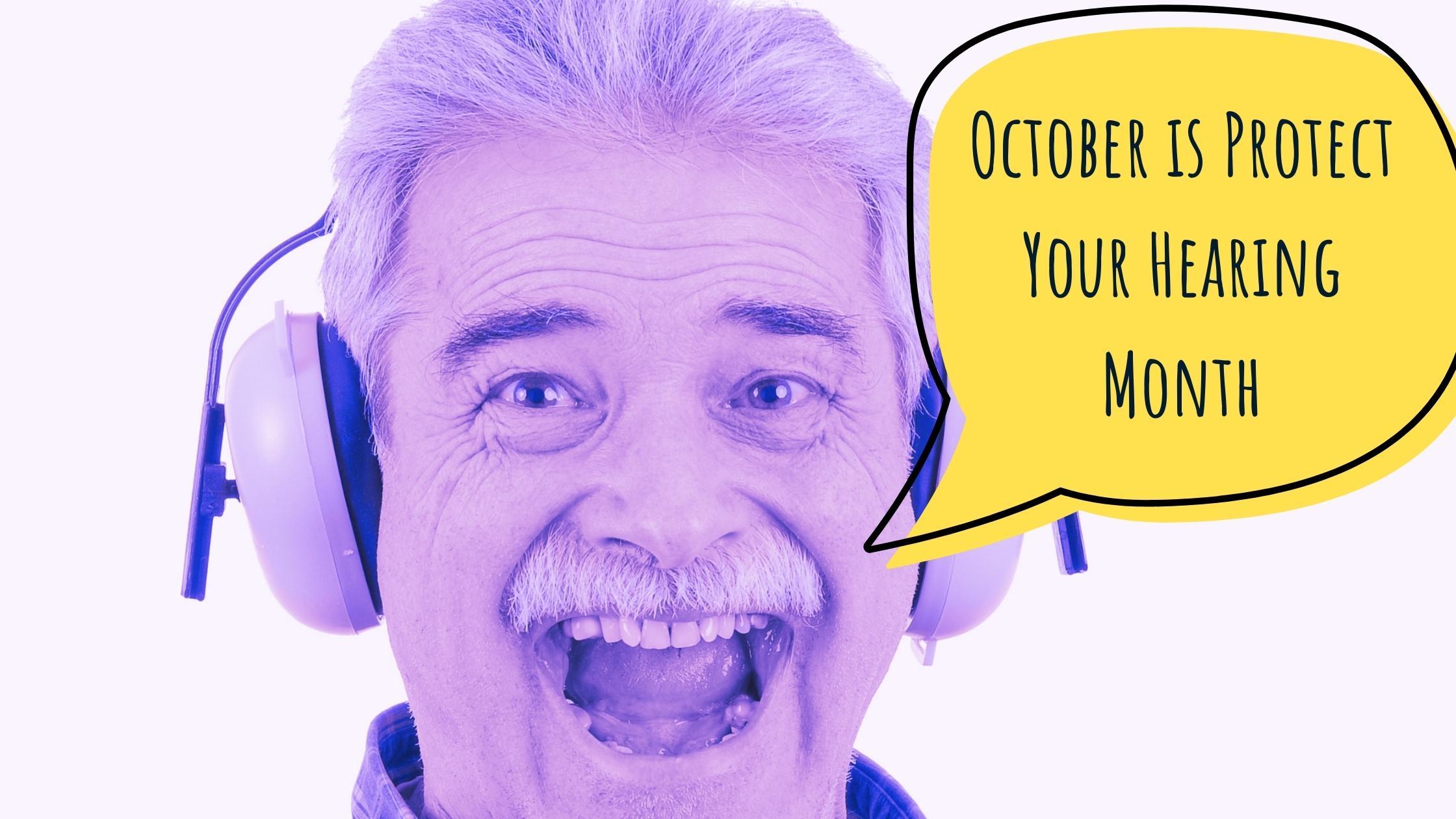
- A Guide to Different Hearing Aid Styles - May 6, 2025
- What is the Lifespan of Hearing Aid Batteries? - April 27, 2025
- Understanding the Different Types of Assistive Listening Technology - April 15, 2025
Do you ever leave work or a concert and find that your hearing is ringing? This buzzing in the ears is called tinnitus and is most often a sign that you have been exposed to dangerous levels of noise. Over time, exposure to harmful levels of noise can conglomerate into noise induced hearing loss. October means that it is National Protect Your Hearing Month. This annual month-long initiative is led by National Institute on Deafness and Other Communication Disorders (NIDCD) with the intent to educate you and your loved ones on how to detect when ears are being exposed to harmful noise and how to protect them.
When and Where is Sound Too Loud?
Sounds can be relaxing and even release endorphins which bring feelings of well-being and joy. However, as sounds cross a threshold of intensity, they quickly can become noise. Even noise you love like your favorite song or the sound of a sporting event can quickly escalate into noise pollution. Our world is increasingly becoming louder and louder. Our workplaces, our commute, our employment and even how we enjoy recreation may potentially cause hearing damage. It is important to be aware of where and when sound reaches levels loud enough to cause permanent hearing damage.
How Hearing Loss Occurs
Our ears collect sound from our environment and through a series of vibrations are led down the ear canal, into the inner ear. In the inner ear is a tiny fluid filled organ called the cochlea which also contains tiny hair-like cells. These cells are called stereocilia and transform sound information from vibration into electrical impulses which are delivered to the auditory cortex of the brain, where sound is processed and comprehended. However, when sound reaches a certain threshold, the vibrations become intense to the point where the stereocilia are thrust against the membrane walls in which they are held, causing them to shatter. This can cause the cells to become damaged or destroyed, which impedes all sounds from reaching the brain.
The Dangers of Untreated or Undetected Hearing Loss
At first it could just be some sounds, tones, or pitches. This can make it hard to follow conversation. A simple social interaction which used to energize you suddenly becomes exhausting. Over years of unrealized hearing loss, it is common for people to withdraw from social situations, struggle in work and educational environments and become chronically depressed. This is why it is important to test for hearing loss even if you are not aware of a significant impairment. The sooner you catch a hearing loss, the sooner you can treat it.
How Loud is Too Loud?
The intensity, or volume of sound is measured in decibels. Any decibel level above 85 can start to damage hearing. It isn’t just the level of the decibel but the length of exposure. An exposure of 85 decibels in a work setting can start to cause damage to the stereocilia in about 8 hours. However, an exposure of 88dB can start to cause the same amount of damage in only half the time. Some everyday sounds such as an emergency siren can reach 110-129 dB. In only two minutes of exposure at 110 dBA can damage hearing.
Making a Plan of Protection
While it is not always possible to know when you will be exposed to noise, understanding the decibels levels in the places you frequent most can help. For instance, the source of most people’s exposure to noise comes from exposure in your home, your commute, your workplace, your recreation, and your hobbies. You can measure the decibel levels in the places you frequent, so you know if it is a place where you require hearing protection.
Hearing Protection
There are two types of common hearing protection which include earplugs which fit in your ear canal and protective earmuffs. Depending on your environment and the amount of protection you require you may want to alternate hearing protection. Most hearing protection has the potential to limit sound by 15-33dB. This could drastically protect your hearing in many environments in your life. In addition, make sure to take listening breaks and step away to give your hearing a break. If you do feel like you have some hearing damage, don’t wait for it to get worse. Set up a hearing exam with us today. We can help you explore your hearing options and find the best one for you.
